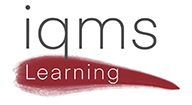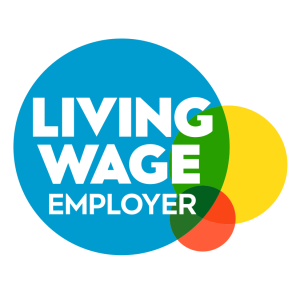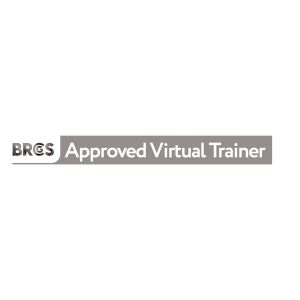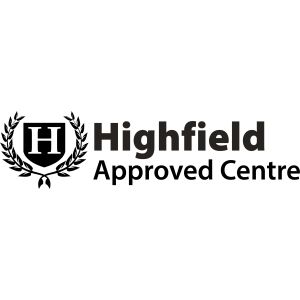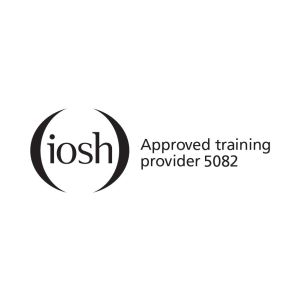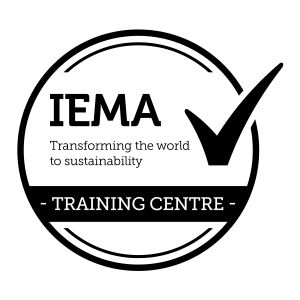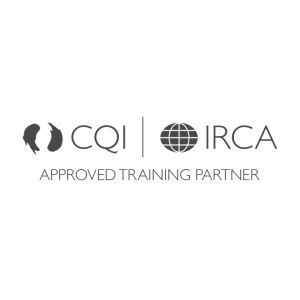This intensive, challenging and highly interactive training program is for those people who require an in-depth understanding of the ISO 27001:2022 and associated standards, and the range of auditing techniques and protocols associated with the lead auditor role. Every organisation understands the importance of managing and taking care of its information securely, including legal, contractual and moral requirements to do so. On successfully completing the course, students will have an appreciation of the importance of controlling Information Security in all types of business; a detailed knowledge of ISO 27001:2022 Information Security Requirements and a detailed understanding of the principal requirements for auditing Information Security Management Systems (ISMS).Duration5 Days, 08:30 – 18:00 (days 1-4), 08:30 – 14:00 (day 5)Who should attend?This course satisfies the training requirements for those who wish to register as an ISMS lead auditor with the IRCA. It is also essential for anyone involved managing information and with a responsibility to design, implement and manage an ISMS management system that meets the requirements of ISO 27001:2022. Other people who have found this course useful in the past have been internal ISMS auditors who have been looking to enhance their auditing knowledge and skills, and those looking to achieve formal recognition for the skills and knowledge that they possess.Prior KnowledgeThose attending this course are expected to have knowledge of ISO 27001:2022 as well as experience in auditing and Information Security Management Systems.Course objectivesThe course objectives are to provide interpretation and understanding of Information Security Management Systems (ISMS), ISO 27001:2022 and auditing ISMS. The course is aimed at all levels of personnel from senior management to supervisors, who are concerned with the information security in their organisation. The course will also equip delegates with a sound knowledge of the requirements of ISO 27001:2022 and knowledge of associated standards.Course content Introduction to Information Security Detailed content of ISO 27001:2022 Similarities with other management systems standards Information Security Management Issues including operational control Information Security Audit Skills Practical exercises and feedback. What are the benefitsThe course is designed not only to help people perform capable and value-adding quality audits, but also to develop delegates’ wider understanding of quality management systems design and implementation. In particular it will help delegates get to grips with those issues of ever-increasing importance, such as customer satisfaction, continual improvement and the management of processes. It will help delegates understand how these critical issues can be embedded into the quality management system of an organisation. In-House CoursesOffering better value for money, they can be designed to closely match your specific requirements.Style of Delivery and Course LeadersOur course leaders have unrivalled experience in information security management systems design and implementation, including ISO 27001:2022. They are qualified and experienced auditors with extensive practical management experience across a wide range of businesses. We have extensive experience working across cultural boundaries, through our work in Europe, Africa, the Middle East, Asia and the Americas.CertificationDelegates successfully completing the course, including examination, will be awarded an iqms Learning Lead Auditor certificate.
Search for "lead auditor"
Aimed at all organisations in the food and feed industries, regardless of size or sector ISO 22000:2018 translates Food Safety Management into a continuously improving process. It takes a precautionary approach to food safety by helping to identify, prevent and reduce foodborne hazards in the food and feed chains. The 2018 version brings clarity of understanding and offers a dynamic control of food safety hazards combining the following generally recognised key elements: interactive communication, systems management, Prerequisite Programmes (PRPs) and the principles of Hazard Analysis and Critical Control Points (HACCP). This intensive, challenging and highly interactive CQI and IRCA Certified training program is for those people who require an in-depth understanding of the knowledge and skills required to perform first, second and third-party audits of Food Safety Management Systems (FSMS) against ISO 22000. Many of the skills acquired on this course can be applied to auditing other Food Safety Management Systems.Please note - If you are looking for a public course and your initial interest is ISO 22000, the FSSC 22000 Lead Auditor course may still be suitable as the course covers ISO 22000 with additional food safety requirements.Duration5 Days, 08:30 – 17:30 (Days 1 to 4) 08:30 – 15:30 (Day 5)Who should attend?This course satisfies the training requirements for those who wish to register as a food safety system lead auditor with the CQI and IRCA Certified training under the food safety auditor scheme Food safety professionals with a responsibility to design, implement and manage a Food Safety Management System that meets the requirements of ISO 22000 Food safety auditors who have been looking to enhance their auditing knowledge and skills or looking to achieve formal recognition for the skills and knowledge that they possess. Auditors, from any organisation in the food chain, who need to lead audits and audit teams, both in their own organisation and in others, such as suppliers, where there is a requirement to audit Food Safety Management Systems against ISO 22000Course content PDCA cycle and its use within an FSMS Terms and definition used in ISO 22000 pre-requisite standards Maintaining and retaining documented information The relationship between ISO 22000 & ISO 22002 series of pre-requisite standards 1st, 2nd and 3rd party audits Benefits of third party accredited certification The audit processes Auditor responsibilities Planning and conducting an audit Auditing Food Safety Management System requirements Generating audit findings Reporting and following up the audit Discuss the content and relationship of FSSC with ISO 22000 Discuss the broadened pre-requisites of ISO 22000 and the additional requirements to meet GFSI recognised certification What are the benefitsThis course is designed not only to help people perform food safety audits, but also to develop delegates’ wider understanding of food safety management systems design and implementation. It will help delegates understand how HACCP can be embedded into the Food Safety Management System of an organisation. Successful completion of the course and the achievement of the 50% pass mark will satisfy the formal training requirements for those wishing to register as an Auditor, Lead Auditor or Principal Auditor with CQI and IRCA Certified training under the food safety auditor scheme.In-House CoursesOffering better value for money, they can be designed to closely match your specific requirements.Style of Delivery and Course LeadersOur course leaders are professional practitioners in the food sector, as well as being qualified, registered and experienced auditors. They have extensive knowledge across a wide variety of food industry organisations such as primary food processing, food manufacturing, retailing and catering. They have cut their teeth within high profile organisations, and fully understand the range of technical, legislative and people challenges that face those with a responsibility for delivering robust food safety management systems and customer confidence.CertificationDelegates successfully completing the course, including the examination will be awarded a CQI and IRCA training accredited certificate. (2339)
This intensive ISO 9001 lead auditor course, is a challenging and highly interactive CQI and IRCA certified training program is for those people who require an in-depth understanding of the range of auditing techniques and protocols associated with the Lead Auditor role.Duration5 Days, 08.30 – 17.30 (days 1-3) 08.30 – 17.45 (day 4) 08.30 – 16.15 (day 5)Who should attend?Those attending this course are expected to have knowledge of the following: Quality management principles and concepts: The Plan, Do, Check, Act (PDCA) cycle The relationship between quality management and customer satisfaction Quality management terms and definitions and the 7 Quality Management Principles The process approach used in quality management Process Based Quality Management Systems The structure, content and requirements of ISO 9001 This knowledge can be gained in a number of ways: Previous experience and existing knowledge Attending a CQI and IRCA certified training ISO 9001 Foundation course – or equivalent Reading or self-study If you would like to attend our CQI and IRCA certified training registered ISO 9001 Foundation course at a discounted price to help you prepare for this Lead Auditor course please contact us.Course objectives To enable you to lead an audit team Audit the quality management system of an organisation to the requirements of ISO 9001:2015. Course content ISO 9001:2015 – evidence required for conformity Roles and responsibilities of auditors and lead auditors Processes and techniques for planning, conducting & reporting audits Audit follow-up activities and auditing for continual improvement What are the benefitsThe ISO 9001 training course is designed not only to help people perform value-adding quality audits but also to develop delegates’ wider understanding of quality management systems design and implementation. In particular, it will help delegates get to grips with those issues of ever-increasing importance, such as risk-based thinking, understanding how internal and external issues are managed by an effective management system, customer satisfaction, continual improvement and the management of processes. It will help delegates understand how these critical issues can be embedded into the quality management system of an organisation. Successful completion of the course and the achievement of the 50% pass mark will satisfy the formal training requirements for those wishing to register as an auditor, lead auditor or principal auditor with the CQI and IRCA Certified training scheme.In-House CoursesOffering better value for money, they can be designed to closely match your specific requirements.Style of Delivery and Course LeadersOur course leaders are quality management professionals, as well as being qualified, registered and experienced auditors. They have extensive knowledge across a wide range of sectors including manufacturing, finance, pharmaceuticals, local and national government. They have all cut their teeth as successful change agents within high profile organisations, and fully understand the range of technical, legislative and people challenges that face those with a responsibility for delivering real quality improvements.CertificationSuccessful completion of the course and the achievement of the 50% pass mark in the CQI/IRCA controlled On-line Exam (which must be completed within 30 days after completion of the course), will satisfy the formal training requirements for those wishing to register as an auditor, lead auditor or principal auditor with the CQI and IRCA Certified training scheme. Delegates successfully completing the course, including examination, will be awarded a CQI and IRCA Certified training accredited certificate. (2352).
This highly interactive, intensive and challenging 5-day environmental management systems training course is designed for those people who require an in-depth understanding of auditing techniques and skills associated with the Lead Auditor role. This course is registered with both the Institute of Environmental Management and Assessment (IEMA) and CQI and IRCA Certified training.Duration5 Days, 08.30 – 17.30 (days 1-3) 08.30 – 17.45 (day 4) 08.30 – 16.15 (day 5)Who should attend?This course satisfies the training requirement for those seeking to register with the CQI and IRCA Certified training auditing scheme. It is also essential for any serious environmental practitioner, particularly those who have the main responsibility for implementing and maintaining their environmental management system and manage an audit programme for internal audits. Essential also to those who are required to perform more demanding and extensive company audits (corporate auditing); or who are required to regularly assess the performance of other companies (supplier, contractor and/or certification auditors); and for those who are seeking to develop their auditing and environmental skills to a professional level.Course objectivesThose attending this course are expected to have prior knowledge of the following: Environmental Management principles and concepts: The Plan, Do Check, Act (PDCA) cycle Environmental issues, including an appreciation of environmental protection and pollution prevention and control Environmental management terms and definitions Appreciation of environmental compliance issues Environmental management terms and definitions Typical structures for environmental management systems including process-based systems Structure, content and requirements of ISO 14001:2015 This knowledge can be gained in several ways: Previous experience and existing knowledge Attending a CQI and IRCA Certified training ISO 14001 training course – or equivalent Reading or self-study If you would like to attend our CQI and IRCA Certified training ISO 14001 Foundation course at a discounted price to help you prepare for this Lead Auditor course please contact us.Course contentThe course is designed to help delegates deliver value-added audits to understand the principles of good Environmental Management and to develop their knowledge of the environmental management standard to enable you to lead an audit team. It will also develop delegates’ knowledge & understanding of different environmental audit types, and the practical skills required to plan, execute and report environmental management audits. On completion, delegates will be able to evaluate the effectiveness of an EMS based on the ISO 14001:2015 standard at a level acceptable to certification bodies.What are the benefitsDesigned not only to help people perform value-added audits this course is also designed to develop delegates’ wider understanding of environmental management systems development and implementation. Delegates will gain an understanding of the level of performance required for implementing a successfully certified EMS and how to assess against the ISO 14001:2015 standard. It will help delegates to develop essential conceptual skills including risk-based thinking, continual improvement, life-cycle thinking, and process-based approaches. This course satisfies the formal training requirements for those wishing to register with the IEMA Auditor Registration Scheme and/or with the CQI and IRCA Certified auditing scheme.In-House CoursesOffering better value for money, they can be designed to closely match your specific requirements.Style of Delivery and Course LeadersA combination of presentations and guided exercises and a highly interactive role-play exercise involving a simulated audit makes this course both beneficial and enjoyable for participants. Course attendees are assessed on their knowledge and understanding throughout the course and will also be required to sit a 2-hour examination to assess their level of understanding to complete this course. Our course leaders have substantial experience in the field of environmental management systems design and implementation. They are qualified and experienced auditors with extensive practical management experience across a wide range of sectors including manufacturing, service and utilities, local and national government.CertificationDelegates completing the course, including examination, will be awarded both a CQI and IRCA Certified training certificate (2355) and an IEMA Certified training certificate.
This practical workshop based course is for those intending to acquire the competencies to audit an organisation's entire Food Safety Management System (FSMS) to meet the requirements of the FSSC 22000 scheme, either as a third or second-party auditor. The Food Safety System Certification 22000 (FSSC 22000) includes a complete certification Scheme for the auditing and certification of a Food Safety Management Systems (FSMS). The scheme was developed through extensive and open consultation with many global stakeholders and uses international and independent standards such as ISO 22000, ISO 9001, ISO/TS 22003, and technical specifications for sector-specific Pre-Requisite Programs (PRPs), such as ISO/TS 22002-1. The FSSC Scheme cover sectors where a technical specification for sector PRPs has been developed and follows the food chain category description as defined in ISO/TS 22003 This intensive, challenging and highly interactive CQI and IRCA Certified training program is for those people who require an in-depth understanding of the knowledge and skills required to perform second and third-party audits of a FSMS against FSSC 22000 or ISO 22000. Many of the skills acquired on this course can be applied to auditing other Food Safety Management Systems.Please note - If you are looking for a public course and your initial interest is ISO 22000, the FSSC 22000 Lead Auditor course may still be suitable as the course covers ISO 22000 with additional food safety requirements.Duration5 Days, 08:30 – 17:00 (Days 1 to 4) 08:30 – 15:30 (Day 5) (Online Exam)Who should attend? This IRCA Certified FSSC 22000 Lead Auditor (FSMS) training course satisfies the training requirements for those who wish to register as a food safety management system lead auditor with the CQI and under the food safety auditor scheme Food safety professionals with a responsibility to design, implement and manage a Food Safety Management System that meets the requirements of FSSC 22000 or ISO 22000 Food safety auditors who have been looking to enhance their auditing knowledge and skills or looking to achieve formal recognition for their skills and knowledge. Auditors, from any Organisation in the food chain, who need to lead audits and audit teams, both in their own Organisation and in others, such as suppliers, where there is a requirement to audit Food Safety Management Systems against FSSC 22000 or ISO 22000 Course objectivesIt is ESSENTIAL that those attending this course have the following prior knowledge: Knowledge of the principles of food safety management including pre-requisite programmes and HACCP It is RECOMMENDED that those attending this course have the following prior knowledge: The relationship between food safety management and the provision of safe food Awareness of common examples of relevant national and local FSMS legislation (in the food sector and country relevant to the delegate) Knowledge of the requirements of FSSC 22000, ISO/TS 22002 and the commonly used food safety management terms and definitions as given in FSSC 22000 The Plan, Do, Check, Act (PDCA) cycle Course content PDCA cycle and its use within an FSMS THE FSSC standard (ISO 22000, ISO 22002 pre-requisite standards and FSSC additional requirements. Terms and definition used in FSSC 22000 and ISO 22000 FSMS Documentation ISO 19011/ ISO17021 and auditing 1st, 2nd, and 3rd party audits Benefits of third-party accredited certification The audit processes Selecting an audit team Stage1, Stage 2, surveillance, unannounced and recertification audits Auditor responsibilities and competencies Planning and conducting an audit Auditing Food Safety Management System requirements Generating audit findings and nonconformities Reporting and following up of an audit What are the benefitsThis practical workshop based course is designed to develop the knowledge and competencies needed to perform an audit of a FSMS. The course will also develop delegates’ wider understanding of food safety management systems design and implementation and understand how HACCP must be embedded into the Food Safety Management System of an organisation for it to be effective. Successful completion of the course and the achievement of the 50% pass mark will satisfy the formal training requirements for those wishing to register as an Auditor, Lead Auditor or Principal Auditor with CQI and IRCA Certified training under the food safety auditor scheme.In-House CoursesOffering better value for money, they can be designed to closely match your specific requirements.Style of Delivery and Course LeadersOur course leaders are professional practitioners in the food sector, as well as being qualified, registered, and experienced auditors. They have extensive knowledge across a wide variety of food industry organisations such as primary food processing, food manufacturing, retailing, and catering. They have cut their teeth within high profile organisations, and fully understand the range of technical, legislative and people challenges that face those with a responsibility for delivering robust food safety management systems and customer confidence.CertificationDelegates successfully completing the course, including the examination will be awarded a CQI and IRCA training accredited certificate. (2682)
This five-day highly interactive CQI and IRCA Certified Lead Auditor training course will enable you to understand the new international occupational health and safety management system (OHSMS) standard ISO 45001:2018. You will learn how you can use utilise the new standard to understand, manage and maintain internal and external Health and Safety Management duties and performance obligations. With knowledge and understanding of ISO 45001:2018, you can evaluate your own organisation’s arrangements against OHS commitments and how they can be improved.Duration5 Days, 08:30 – 17:15Who should attend?This course is invaluable for health and safety professionals who wish to develop their auditing skills. It is particularly useful for those people who regularly assess the health and safety performance of 2nd and 3rd parties. It is also essential for any serious occupational health and safety practitioner with a responsibility to design, implement and manage a health and safety management system that meets the requirements of ISO 45001:2018.Course objectivesTo develop delegates’ understanding of the principles of Health and Safety Management, requirements of ISO 45001:2018, and teach the theoretical and practical skills required to plan, execute and report health and safety management systems audits.Course content OHSMS Fundamentals OHSMS Concepts Overview of Auditing an OHSMS Auditing Clauses 4-10 of ISO 45001:2018 ISO 19011 and Auditing Audit Planning and Preparation Performing the Audit Reporting Audit Outcome What are the benefitsThe course is designed not only to help people perform effective and value-adding audits, but also to develop delegates wider understanding of the ISO 45001 health and safety management systems design and implementation. Successful completion of the course and the achievement of the 50% pass mark will satisfy the formal training requirements for those wishing to register as auditors or lead auditors under the CQI and IRCA Certified training scheme.In-House CoursesOffering better value for money, they can be designed to closely match your specific requirements.Style of Delivery and Course LeadersOur course leaders have a background in health and safety as well as being CQI and IRCA qualified, registered and experienced auditors. They have extensive knowledge across a wide range of sectors including manufacturing, finance, pharmaceuticals, local and national government.CertificationDelegates successfully completing the course will be awarded a CQI and IRCA training accredited certificate. (2338). . Prior knowledgeThose attending this course are expected to have knowledge of the following: Occupational health & safety management principles and concepts: The Plan, Do, Check, Act (PDCA) cycle The purpose and benefits of an OH&S management system A basic knowledge of managing OH&S through hazard identification, risk assessment and risk control and compliance with legal and other requirements A basic awareness of common examples of relevant national and local OH&S legislation and requirements Commonly used OH&S terms and definitions as given in ISO 45001. This knowledge can be gained in a number of ways: Previous experience and existing knowledge Attending a CQI and IRCA Certified ISO 45001 Foundation training course – or equivalent Reading or self-study If you would like to attend our CQI and IRCA Certified ISO 45001 Foundation training course at a discounted price to help you prepare for this Lead Auditor course please contact us.
This course trains delegates in Third-Party Audit requirements against the BRCGS Global Standard for Food Safety Issue 9. In addition, the course includes the relevant aspects of auditing within the food sector. Attending this course allows you to gain an in-depth and practical understanding of the BRCGS Standard and auditing methodology.Duration5 Days, 09.00 – 17.00 each dayWho should attend?This course is aimed at Technical and Quality Managers who wish to gain an in-depth understanding of the audit process and skills required as well as Certification Body Auditors or new Auditors seeking registration. Prior KnowledgeDelegates must have a working knowledge of quality management systems and auditing within the relevant manufacturing sector and also have completed a HACCP course (minimum 2 days duration). Delegates must have read and reviewed a copy of the Global Standard for Food Safety Issue 9, a link to download this will be sent to them prior to the course commencing.Course objectivesThis 5-day in-depth course will provide an understanding of the Standard in terms of the protocol, requirements and how to audit effectively. This course ensures that delegates attending are trained to the high standards required to become a BRCGS Lead Auditor.Course content Understanding the requirements of the Standard and how compliance can be demonstrated The BRCGS auditing protocol Implementing effective auditing techniques Demonstrating food safety auditor competencies as defined by GFSI Correctly completing an audit report The compliance monitoring of certification bodies Being able to supply information on the BRCGS Global Standards Directory The BRCGS Global Standards scheme What are the benefitsDelegates will gain an in-depth guide to the requirements of the Standard, and learn how to undertake a BRCGS audit, including effective planning, conducting and reporting of the audit. Auditing techniques will be practiced and developed, to include the auditor competency skills required of GFSI scheme auditors.In-House CoursesOffering better value for money, they can be designed to closely match your specific requirements.Style of Delivery and Course LeadersOur course tutors are approved training providers, approved by the BRCGS. They are qualified and experienced with extensive practical knowledge across a wide range of sectors in manufacturing, catering and retail.CertificationDelegates successfully completing the course and examination will be awarded a BRCGS Lead Auditor certificate issued by the BRCGS.
This highly interactive two-day CQI and IRCA Certified training programme is designed for those people who require a sound understanding of the techniques and principles of quality auditing. It also covers the role of the internal auditor in the development and improvement of an effective quality management system. The role of the internal quality auditor is changing. It is no longer enough that internal audits check procedural conformance, but auditors now need to be able to audit processes with emphasis on risk. Delegates will also become more aware that they play a key role in the development and improvement of working practices across the organisation. This course focuses delegates on the most important attributes of a modern and effective quality management system and helps them to understand the role of the auditor in its development and continual improvement. It introduces delegates to the ISO 9000 series standard and the 7 quality management principles that underpin them.Duration2 Days, 09.00 – 17:10 (Day 1) 08.45 – 17:15 (Day 2)Who should attend?This course is essential for those who will undertake internal quality audits, or who will be required to plan, manage and implement internal audit programmes. Other people who find this course useful are team leaders and supervisors in quality-driven organisations, who are looking to broaden their awareness of quality issues in order to understand how they can improve their overall contribution to the success of the business. The course does not require any past auditing or quality management experience.Course objectivesTo enable those attending to plan, perform and report the results of internal quality audits with the aim of developing and improving the quality management system of an organisation. To help delegates understand the key attributes of an efficient and effective quality management system and the role of the internal auditor in its continual improvement and development. This course will equip delegates with an understanding of the development and application of Quality Management techniques and how the ISO 9001:2015 standard is interpreted and implemented.Course content Plan-Do-Check-Act methodology and other fundamental quality management principles Business process auditing Risk based thinking Quality Internal Auditor The structure and principles of the ISO 9000 series standards An overview of ISO 9001 Quality management system implementation issues Effective auditing techniques and good audit practice What are the benefitsThis course, combined with a CQI and IRCA certified ISO 9001:2015 Foundation course, satisfies the formal training requirements for those wishing to register with CQI and IRCA certified training as an Internal Quality Auditor. Successful delegates will be equipped with the technical skills and knowledge required to plan, conduct and report internal quality audits. Delegates also find the interactive nature of the course, its challenging content and extensive use of team-based exercises stimulating and surprisingly enjoyableIn-House CoursesOffering better value for money, they can be designed to closely match your specific requirements.Style of Delivery and Course LeadersOur course leaders have an unrivalled quality management systems design and improvement experience. They are qualified and experienced auditors with extensive practical management experience across a wide range of sectors including manufacturing, finance, pharmaceuticals, local and national government. We have extensive experience working across cultural boundaries, through our work in Europe, Africa, the Middle East, Asia and the AmericasCertificationDelegates successfully completing the course will be awarded a CQI and IRCA Certified training accredited certificate. (2351) If you're looking for the ISO 9001:2015 Lead Auditor course, please click here
This one-day CQI and IRCA certified training course is for those wanting an introduction to the new international occupational health and safety management system (OHSMS) standard ISO 45001:2018 and to understand how it can be used to develop, maintain and improve your health and safety performance. Knowledge and understanding of ISO 45001:2018 is more than simply reading the standard’s text. It demands an understanding of the requirements and a considered application of the standard to the organisation. After this course, you will have sufficient insight to be able to evaluate your own organisation’s arrangements and identify how they can be improved.Duration1 Day, 08:30 – 17:00Who should attend?This course is designed for those needing an introduction to OHSMS and is a pre-requisite for those wishing to attend the CQI and IRCA certified OHSMS Internal Auditor or Lead Auditor course. It is ideal for managers, supervisors, health and safety representatives, OH&S consultants and those with health and safety management responsibilities or anyone wishing to understand the impact and relevance of ISO 45001:2018 to their organisations.Course objectivesThis course will equip delegates with an understanding of the development and application of OHSMS techniques and how the ISO 45001:2018 standard is interpreted and implemented. On completion of the course delegates will be able to: Understand the purpose and business benefits of an OHSMS Outline the structure and content of ISO 45001 and its relationship with Annex SL Interpret the requirements of ISO 45001 in the context of an effective OHSMS Course content Occupational Health and Safety Management Systems (OHSMS) – introduction and key OHS concepts OHSMS based on ISO 45001:2018 including the Process Approach Key ISO 45001 requirements Organisational context OH&S Policy and Planning Risks and opportunities to the OHSMS Hazard identification and elimination and controls, operation, performance evaluation and improvement ISO 45001:2018 requirements including; worker needs, interests and participation as well as interested parties Continual improvement of an OHSMS What are the benefitsAttendance will enable delegates to: Decide how best to develop the OHSMS of their organisation and avoid common problems Add to their occupational health and safety management career credentials Understand the relevance of OHSMS standards to their organisation Improve OHS decision-making Demonstrate the competitive benefits of OHSMS standards to their own and other organisations In-House CoursesOffering better value for money, they can be designed to closely match your specific requirements.Style of Delivery and Course LeadersOur course leaders have extensive experience across a wide range of sectors including manufacturing, service and professional organisations including Local, National and International Government. This wide experience enables them to make the course more interesting by using their relevant examples and case studies during workshop discussions. Our team of staff has extensive experience of working across cultural boundaries, through their work in Europe, Africa, the Middle East, Asia and the Americas.Certification Delegates successfully completing the course will be awarded a CQI and IRCA Certified training accredited certificate. (2336).
This integrated management systems internal auditor programme combines the disciplines of quality and environmental management systems. The course is based on auditing to the ISO 9001:2015 and ISO 14001:2015 standards. This interactive three-day training programme is designed for those who need to be able to understand and apply recognised principles and techniques of effective management system auditing for quality and environmental management systems. The modern management systems’ auditor needs to be trained not only on procedural auditing, but also be able to audit processes with an emphasis on a risk-based approach. An effective audit will bring benefits to your organisation and ensure the integrated management system (IMS) continues to meet its objectives. Internal auditors need to understand their role and responsibilities and be sufficiently competent in evaluating the IMS effectively. This course focuses delegates on the most important attributes of an IMS and helps them to understand the role of the auditor in its development and continual improvement.Duration3 days, 9.00 – 17.30Who should attend?This course is an essential for those who will undertake internal integrated management system audits based on the ISO 9001:2015 and ISO 14001:2015 standards, or who will be required to plan, manage and implement internal audit programmes. Other people who find this course useful are team leaders and supervisors within the IMS, who are looking to broaden their awareness of quality and environmental issues in order to understand how they can improve their overall contribution to the success of the business.Course objectivesUpon successful completion of this course, students will: Understand the purpose and benefits of management systems Have a greater understanding of the structure, content and the intent of ISO 9001 and ISO 14001:2015 Be familiar with the terms and definitions used Have a greater understanding of the concept of the process model and apply the process approach Be aware of all stages of the audit cycle Gain the knowledge and skills necessary to plan, conduct, report internal audits of management systems Course content Overview of ISO 9001:2015 quality and ISO 14001:2015 environmental Management System requirements Plan-Do-Check-Act methodology Quality and environmental management principles Risk-based thinking Auditors roles and responsibilities Types of audits Effective auditing tools and techniques and good audit practices Reporting valid findings and managing corrective actions What are the benefitsSuccessful delegates will be equipped with the technical skills and knowledge required to plan, conduct and report internal integrated management systems audits, saving both time spent on auditing and cost to your organisation. Delegates also find the interactive nature of the course, it’s challenging content and extensive use of team-based exercises an enjoyable and effective way to learn.In-House CoursesOffering better value for money, they can be designed to closely match your specific requirements.Style of Delivery and Course LeadersOur course leaders are quality management professionals, as well as being qualified, registered and experienced auditors. They have extensive knowledge across a wide range of sectors including manufacturing, finance, pharmaceuticals, local and national government. They have all cut their teeth as successful change agents within high profile organisations, and fully understand the range of technical, legislative and people challenges that face those with a responsibility for delivering real quality improvements.CertificationDelegates successfully completing the course will be awarded an iqms Learning Integrated Management System (IMS) Auditor certificate.
This integrated management systems internal auditor programme combines the disciplines of environmental and health & safety management auditing based on the ISO 14001:2015 and ISO 45001:2018 standards. This three-day interactive training programme is designed for those who need to be able to understand and apply recognised principles and techniques of effective management system auditing to environmental and health & safety management systems. The modern management systems auditor cannot rely on procedural auditing, but also needs to be able to audit processes with an emphasis on risk-based thinking. An effective audit will bring benefits to your organisation and ensure the integrated management system (IMS) continues to meet its objectives. Internal auditors need to understand their role and responsibilities and be sufficiently competent in evaluating the IMS effectively. This course focuses delegates on the most important attributes of an IMS and helps them to understand the role of the auditor in its development and continual improvement.Duration3 days, 9.00 – 17.00Who should attend?This course is essential for those who will undertake internal integrated management system audits based on the ISO 14001:2015 and ISO 45001:2018 standards, or for those who will be required to plan, manage and implement internal audit programmes. Other people who will find this course useful are team leaders and supervisors within the IMS, who are looking to broaden their awareness of quality, environmental and occupational health & safety issues in order to understand how they can improve their overall contribution to the success of the business. The course does not require any past auditing or environmental and health & safety management system experience.Course objectivesUpon successful completion of this course, students will: Understand the purpose and benefits of management systems Have a greater understanding of the structure, content and the intent of ISO 14001 and ISO 45001 Be familiar with the terms and definitions used Have a greater understanding of the concept of the process model and apply the process approach Be aware of all stages of the audit cycle Gain the knowledge and skills necessary to plan, conduct, report internal audits of management systems Course content Overview of ISO 14001:2015 environmental and ISO 45001:2018 occupational health & safety management system requirements Plan-Do-Check-Act methodology Environmental and health and safety management principles Risk-based thinking Auditors roles and responsibilities Types of audits Effective auditing tools and techniques and good audit practices Reporting valid findings and managing corrective actions What are the benefitsUpon successful completion delegates will be equipped with the technical skills and knowledge required to plan, conduct and report internal integrated management systems audits, saving both time spent on auditing and cost to your organisation. Delegates will also find the interactive nature of the course, it’s challenging content and extensive use of team-based exercises an enjoyable and effective way to learn.In-House CoursesOffering better value for money, they can be designed to closely match your specific requirements.Style of Delivery and Course LeadersA combination of presentations and guided exercises together with an interactive role-play exercise involving a simulated audit makes this course both highly beneficial and enjoyable for participants. Our course leaders are IRCA/IEMA qualified and experienced quality, environmental and occupational health & safety management systems auditors with extensive practical management experience across a wide range of sectors including manufacturing, service and utilities, professional, local and national government. We have extensive experience working across cultural boundaries, through our work in Europe, Africa, the Middle East, Asia and the Americas.CertificationDelegates successfully completing the course, including examination, will be awarded an iqms Learning Integrated Management System (IMS) Internal Auditor certificate for ISO 14001 and ISO 45001.
The course is delivered through a mixture of a workshop led discussions, practical activities and PowerPoint presentations. On day two delegates are required to undertake a live audit (case study based) where delegates are required to apply the skills and techniques they acquired on day one. Delegates will be given feedback on how they performed during the case study and how they can improve on their auditing techniques.Duration2 Days, 09.00 – 17.00 each dayWho should attend?This course is designed for Quality and Technical Managers, personnel responsible for managing internal auditing schedules and personnel responsible for undertaking internal audits as required by BRCGS Standards.Course objectivesThis course explains the need for an Internal Audit System, the principles and terminology relating to Internal Audits and describes the principles of Internal Auditing.Course content Audit Processes Auditing Overview Auditing Concepts Audit Planning Auditor Attributes The Human Aspects of Auditing Conducting the Audit Reporting the Audit What are the benefitsOn successful completion, delegates will have an improved understanding of auditing concepts and have improved auditing skills. Delegates will also be able to identify any current weaknesses in their Internal Audit Systems and upgrade these appropriately.In-House CoursesOffering better value for money, they can be designed to closely match your specific requirements.Style of Delivery and Course LeadersOur course tutors are qualified and experienced with extensive practical audit experience across a wide range of sectors including manufacturing and retail.CertificationDelegates successfully completing the course and assignment will be awarded a BRCGS certificate issued by the BRCGS.
This integrated management systems internal auditor programme combines the disciplines of quality, environmental and health & safety management auditing based on the ISO 9001:2015, ISO 14001:2015 and ISO 45001:2018 standards. This three-day interactive training programme is designed for those who need to be able to understand and apply recognised principles and techniques of effective management system auditing to quality, environmental and health & safety management systems. The modern management systems auditor cannot rely on procedural auditing, but also needs to be able to audit processes with an emphasis on risk-based thinking. An effective audit will bring benefits to your organisation and ensure the integrated management system (IMS) continues to meet its objectives. Internal auditors need to understand their role and responsibilities and be sufficiently competent in evaluating the IMS effectively. This course focuses delegates on the most important attributes of an IMS and helps them to understand the role of the auditor in its development and continual improvement.Duration3 days, 9.00 – 17.30Who should attend?This course is essential for those who will undertake internally integrated management system audits based on the ISO 9001:2015, ISO 14001:2015 and ISO 45001:2018 standards, or for those who will be required to plan, manage and implement internal audit programmes. Other people who will find this course useful are team leaders and supervisors within the IMS, who are looking to broaden their awareness of quality, environmental and occupational health & safety issues to understand how they can improve their overall contribution to the success of the business. The course does not require any past auditing or quality, environmental and health & safety management system experience.Course objectivesUpon successful completion of this course, students will: Understand the purpose and benefits of management systems Have a greater understanding of the structure, content and the intent of ISO 9001 and ISO 14001:2015 Be familiar with the terms and definitions used Have a greater understanding of the concept of the process model and apply the process approach Be aware of all stages of the audit cycle Gain the knowledge and skills necessary to plan, conduct, report internal audits of management systems Course content Overview of ISO 9001:2015 quality, ISO 14001:2015 environmental and ISO 45001:2018 occupational health & safety management system requirements Plan-Do-Check-Act methodology Quality and environmental management principles Risk-based thinking Auditors roles and responsibilities Types of audits Effective auditing tools and techniques and good audit practices Reporting valid findings and managing corrective actions What are the benefitsSuccessful delegates will be equipped with the technical skills and knowledge required to plan, conduct and report internal integrated management systems audits, saving both times spent on auditing and cost to your organisation. Delegates also find the interactive nature of the course, its challenging content and extensive use of team-based exercises an enjoyable and effective way to learn.In-House CoursesOffering better value for money, they can be designed to closely match your specific requirements.Style of Delivery and Course LeadersOur course leaders are management systems professionals, as well as being qualified, registered and experienced auditors. They have extensive knowledge across a wide range of sectors including manufacturing, finance, pharmaceuticals, local and national government. They have all cut their teeth as successful change agents within high profile organisations, and fully understand the range of technical, legislative and people challenges that face those with a responsibility for delivering real quality improvements.CertificationDelegates completing the course will be awarded an iqms Learning certificate.
This interactive CQI and IRCA Certified two-day training programme aims to help delegates to understand and apply the principles and techniques that are required for conducting effective environmental audits. A good system of auditing is one of the most effective methods of ensuring that the Environmental Management System (EMS) continues to meet its objectives and for control and for identifying improvements. Auditors need to be sufficiently competent in order to evaluate the EMS effectively if the organisation is to achieve the full benefit from its EMS and have confidence that it is achieving its objectives. This IRCA registered course focuses delegates on the most important attributes of a modern and effective environmental management system and helps them to understand the role of the auditor in its development and continual improvement. It introduces delegates to business environmental issues and relevant legislative issues. The course is based on auditing with the ISO 14001:2015 standard.Duration2 Days, 09.00 – 17.10 (day 1) 08.45 – 17.15 (day 2)Who should attend?This course is essential for those who will undertake internal environmental audits, or who will be required manage and implement internal audit programmes. Other people who find this course useful are team leaders and supervisors with EMS, who are looking to broaden their awareness of environmental issues in order to understand how they can improve their overall contribution to the success of the business. The course does not require any past auditing or environmental management system experience.Course objectivesTo enable delegates to effectively plan, perform, evaluate and report the results of internal environmental audits with confidence. To help delegates understand the key attributes of an efficient and effective environmental management system and the role of the internal auditor in its continual improvement and development.Course content Basic environmental thinking and risk-based concepts Structure and principles of an environmental management system Overview of key ISO 14001:2015 requirements Auditors roles and responsibilities Types of environmental audit Effective auditing techniques and good audit practices Reporting valid findings and managing corrective actions What are the benefitsThis course, combined with an ISO 14001 foundation course, satisfies the formal training requirements for those wishing to register under the CQI and IRCA Certified training scheme as an Internal EMS Auditor. Successful delegates will be equipped with the technical skills and knowledge required to plan, conduct and report internal EMS audits. Delegates also find the interactive nature of the course, it’s challenging content and extensive use of team-based exercises an enjoyable and effective way to learn.In-House CoursesOffering better value for money, they can be designed to closely match your specific requirements.Style of Delivery and Course LeadersA combination of presentations and guided exercises together with an interactive role-play exercise involving a simulated audit makes this course both highly beneficial and enjoyable for participants. Our course leaders are qualified and experienced environmental auditors with extensive practical management experience across a wide range of sectors including manufacturing, service and utilities, professional, local and national government. We have extensive experience working across cultural boundaries, through our work in Europe, Africa, the Middle East, Asia and the Americas.CertificationDelegates successfully completing the course will be awarded a CQI and IRCA Certified training certificate (2354).
Based on the leading global food safety standard, this highly interactive two-day training programme is designed for those people who require a sound understanding of the techniques and principles of food safety auditing. It also covers the role of the food safety auditor in the development and improvement of an effective food safety management system. This course is essential for those who will undertake internal food safety audits, or who will be required to plan, manage and implement internal audit programmes.Duration2 Days, 09.00 – 17.15Who should attend?This course is ideal for food industry personnel intending to become involved in the internal audit process for the maintenance and improvement of their food safety programmes including those: Involved in auditing the site HACCP program or external suppliers Intending to become involved in the internal audit process for the maintenance and improvement of their site’s food safety management system. Typical roles include Quality Assurance Managers, Supervisors and internal audit team members. The audit principles and techniques developed in this course can be applied to any food safety management standard.Course objectivesTo understand the audit process and be able to plan, perform and report the results of internal food safety audits with the aim of developing and improving the food safety management system of an organisation. To help delegates to understanding best practice for ensuring successful internal audits.Course content Introduction to auditing food safety management systems This course is based on ISO 22000, BRCGS and other GFSI recognised standards Audit preparation including audit scheduling, audit planning and audit checklists Performing the audit including opening meetings,non-verbal communications, question techniques, resolving conflict and gathering objective evidence. Presentation of audit findings including the evaluation of audit findings, non-conformity classification, corrective action requests, developing an audit report, closing meeting and root cause analysis. Follow up activities Key to successful internal audits What are the benefitsUpon successful completion of the course delegates will be equipped with the technical skills and knowledge required to plan, conduct and report internal food safety audits. Delegates will also find the interactive nature of the course, it’s challenging content and extensive use of team-based exercises stimulating and surprisingly enjoyable. The knowledge and skills developed in the course can be applied to internal audits of any food safety management standard. Delegates can apply for certification as a CQI and IRCA Certified Internal Auditor if they have also completed an FSMS Foundation Course or can prove equivalent knowledge when applying.In-House CoursesOffering better value for money, they can be designed to closely match your specific requirements.Style of Delivery and Course LeadersOur course leaders have unrivalled management systems design and improvement experience. They are qualified and experienced auditors with extensive practical management experience across a wide range of sectors including manufacturing, finance, pharmaceuticals, local and national government. We have extensive experience working across cultural boundaries, through our work in Europe, Africa, the Middle East, Asia and the AmericasCertificationDelegates successfully completing the course will be awarded a CQI and IRCA Certified training accredited certificate. (2340)
This highly interactive two-day CQI and IRCA Certified training course teaches the principles and techniques that are required to effectively audit occupational health and safety management systems (OHSMS). Internal auditing is one of the fundamental mechanisms for maintaining but also for developing and improving existing working practices within an organisation. This course concentrates on the most important attributes of the ISO 45001:2018 management system and helps delegates to understand the role of the auditor in the development and improvement of this system.Duration2 Days, 09.00 - 17.00Who should attend?This course is essential for those who will undertake internal health and safety management system audits or who will be required to plan, manage and implement an internal audit programme.Course objectivesOn completion of this course, participants will be able to: Identify OHS management system standards applicable to health and safety Understand the key terminology related to internal auditing Explain the stages of the auditing process Plan, prepare, communicate and schedule for an internal audit Implement an effective internal audit Collect, verify and evaluate information relevant to the audit Prepare clear audit findings Conduct an effective audit feedback meeting Write and distribute an audit report Conduct follow-up audit activities Course contentThe course content is based on the following course structure overview: OHS Management System Audit Fundamentals Internal Audit Planning Conducting the Audit Reporting Audit Outcomes Audit Follow Up What are the benefitsThis course, combined with an OH&SMS Foundation Course, satisfies the formal training requirement for those wishing to register under the CQI and IRCA Certified training scheme as an Internal OH&SMS Auditor. Successful delegates will be equipped with the technical skills and knowledge required to plan, conduct and report internal health and safety effectively.In-House CoursesOffering better value for money, they can be designed to closely match your specific requirements.Style of Delivery and Course LeadersOur course leaders have an unrivalled management systems design and improvement experience. They are qualified and experienced auditors with extensive practical management experience across a wide range of sectors including manufacturing, finance, pharmaceuticals, local and national government. We have extensive experience working across cultural boundaries, through our work in Europe, Africa, the Middle East, Asia and the AmericasCertification Delegates completing the course will be awarded a CQI and IRCA Certified training accredited certificate. (2337)
This highly interactive 3 day internationally recognised training program is designed for those people who require a basic understanding of the techniques and principles of Lean. We do not touch on heavy statistical analysis during Lean Foundation or Practitioner program. Please see Lean 6 Sigma Programs.Duration3 Days, 9.00-16.00 (including exam on the final day)Who should attend?Lean is used across all sectors and all different sizes of business. Manufacturing Health Services Financial Services Retail Government Services Education Oil and Gas Services Logistics and Supply Chain Services Lean Practitioner is intended for those who plan to lead process improvement project and / or problem-solving activities. Ideally, they would be supported by a number of staff who have completed the Lean Foundation course.Course objectivesThis course is for those businesses who feel they do not want or need to use heavy statistical analysis. Lean provides an understanding of a proven approach for the positive transformation of any organization by using the principles, methods, tools, and techniques to improve the key processes that make up the organization. The course is intended for the delegates to ‘think differently’ during their working day to work smarter, not harder. Lean specifically offers the following benefits: Improved Quality of products and services Improves efficiency Improved delivery times Reduced waiting times Reduced costs Improved customer satisfaction Improved employee morale Course contentThis course takes a deeper dive into some of the subjects already discussed in the Foundation element, in addition: Respect for people Building Lean Teams Visual Management Advanced VOC & CTQ Lean Metrics Advance Problem Solving Prioritization tools – Pugh Matrix Value Stream Mapping What are the benefitsIn order to demonstrate a thorough understanding of the topics discussed, there is an examination on Day 3 of this course. This is a multi-choice open book exam. On successful completion, delegates can call themselves certified a Lean Practitioner and have the knowledge to lead process improvement teams. Having several Practitioners within the organization will give ownership in applying continuous improvement to make their processes Safer, Easier, Better, Faster and Cheaper resulting in improved customer satisfaction and business stabilityIn-House CoursesOffering better value for money, they can be designed to closely match your specific requirements.Style of Delivery and Course LeadersThis course delivered in partnership with Lean 6 Services. Our course leaders have extensive industrial experience. They are qualified and experienced Process / Operational Managers with extensive practical management experience across a wide range of sectors including manufacturing, finance, pharmaceuticals, local and national government. We have extensive experience working across cultural boundaries, through our work in Europe, Africa, the Middle East, Asia and the AmericasCertificationDelegates successfully completing the course will be awarded an ILSSI (international Lean Six Sigma Institute) Accredited training certificate.
This IOSH accredited integrated management systems (IMS) internal auditor course combines the disciplines of quality, environmental and health & safety management auditing, based on the ISO 9001:2015, ISO 14001:2015 and ISO 45001:2018 standards. Whilst accredited auditing courses are available for single discipline auditors, integrated management systems auditing courses mostly do not award a certificate giving any recognition from a recognised body. This course is a four-day intensive and interactive training programme aimed at developing practical and proficient auditing skills with an audit simulation on the final day. Designed for those who need to be able to apply recognised principles and techniques of effective management system auditing and to fast-track their development to be able to conduct effective audits of their integrated management system. Internal auditors need to understand their role and responsibilities and be sufficiently competent in evaluating the IMS effectively. The modern management systems auditor needs to be able to audit processes with an emphasis on risk-based thinking to ensure the integrated management system (IMS) continues to meet its objectives. By the end of the course delegates will be well-equipped to contribute to continual improvement of system and performance.Duration4 days, 8.30 – 17.15Who should attend?This accredited course is essential for those who are responsible for undertaking internal integrated management system audits based on the ISO 9001:2015, ISO 14001:2015 and ISO 45001:2018 standards. An essential course for those who will be required to plan, manage and implement internal audit programmes based on the quality, environmental and OHS standards. Other people who will find this course useful are managers, team leaders and supervisors, who are looking to broaden their awareness of QHSE systems and audits, gaining an understanding of how they can improve their overall contribution to the success of the business. The course does not require any past auditing or quality, environmental or health & safety management system experience.Course objectivesUpon successful completion of this course, students will: Understand the purpose and benefits of management systems Have a greater understanding of the structure, content and the intent of ISO 9001, ISO 14001 and ISO 45001 (including aspects/impacts, hazards/risk and the regulatory framework) Be familiar with the terms and definitions used in auditing systems Have a greater understanding of the concept of the process model and apply the process approach Be aware of all stages of the audit cycle Gain the knowledge and skills necessary to plan, conduct, report internal audits of management systems Express what audit documentation is required to complete effective audits and the elements of what an audit report should contain. Effectively follow-up and close out audit non-conformances What are the benefitsUpon successful completion delegates will be equipped with the technical skills and knowledge required to plan, conduct and report internal integrated management systems audits, saving both time spent on auditing and cost to your organisation. Delegates will also find the interactive nature of the course, it’s challenging content and extensive use of team-based exercises an enjoyable and effective way to learn.In-House CoursesOffering better value for money, they can be designed to closely match your specific requirements.Style of Delivery and Course LeadersA combination of presentations and guided exercises together with an interactive role-play exercise involving a simulated audit makes this course both highly beneficial and enjoyable for participants. Our course leaders are IRCA/IEMA qualified and experienced quality, environmental and occupational health & safety management systems auditors with extensive practical management experience across a wide range of sectors including manufacturing, service and utilities, professional, local and national government. We have extensive experience working across cultural boundaries, through our work in Europe, Africa, the Middle East, Asia and the Americas.CertificationDelegates successfully completing the course, including examination will receive an IOSH certificate.
The Highfields Level 4 award course is designed to allow the learner to understand the importance of how to develop, implement and evaluate CODEX based HACCP food safety management procedures.Duration5 Days, 09.00 – 17.15Who should attend?This course is aimed at learners who are working at management level within food manufacturing and catering environments, quality assurance staff or members of the HACCP team. This qualification would also be useful for trainers, auditors, enforcers and other food safety professionals.Course objectivesThe objective of the qualification is to give delegates the skills to lead in the development and implementation of a HACCP system, to critically evaluate HACCP plans and to understand the importance of having an effective HACCP system in place.Course content HACCP and Legislation Preparing for HACCP Pre-requisite Programmes The 7 Codex HACCP Principles HACCP Documentation Critical Control Points Critical Limits Monitoring Corrective Action Maintaining HACCP The HACCP Team Hazard Analysis Implementation Verification Validation Review What are the benefitsOn successful completion, delegates will have a good awareness of HACCP legislation and principles and will understand: The Importance of HACCP based food safety management procedures How to manage the implementation of HACCP based food safety management procedures How to develop and evaluate HACCP based food safety management procedures Style of Delivery and Course LeadersOur course tutors have substantial experience in the understanding of HACCP and related legislation. They are qualified and experienced with extensive practical knowledge across a wide range of sectors in manufacturing, catering and retail.CertificationDelegates successfully completing the Highfields Level 4 Award in HACCP for Management (CODEX Principles) (RQF) course and examination will be awarded a Highfields Qualifications certificate. Qualification Number: 603/2731/5 The RQF is a qualification framework regulated by Ofqual. It is also suitable for delivery in Wales and is regulated by Qualifications Wales.
Culture has been widely seen as both the cause of many Food Safety shortcomings and the solution to ensuring consistently high standards of Product Safety in Food and associated industries. From Retail to Manufacturing, in all sectors of the Food & Drink industry, establishing and demonstrating a good Product Safety culture is now seen as a fundamental requirement to reputable organisations. Attending this 1-day course participants will gain a fundamental understanding of the importance of a positive product safety culture, the critical issues that affect it and how to begin the development process to establish of positive culture within your organisation.Duration1 Day, 08.45 – 18.00Who should attend?Consultants/Auditors/Technical/HR/Senior Management who lead on culture, Operational, Technical & Quality staff, BRCGS & Industry Professionals or anyone involved in implementing and maintaining Product Safety Culture.Course objectives Describe the concept of Product Safety Culture and why a positive culture is important to ensuring product safety and integrity Identify what the standards require, and the function of the Product Safety Culture Plan within a QMS Recognize the link between behaviour and Product Safety Culture and how it underpins product safety assurance Discuss how to measure an organisation's Product Safety Culture through the use of tools and techniques Develop a sustainable Product Safety Culture action plan and how to engage staff to support it Course content The criticality of Food Safety Culture The role of senior management The impact of attitudes and behaviours Developing your own Product Safety Culture Plan What are the benefitsThis BRCGS course is industry-focused, considering organisational culture, leadership and behavioural concepts; inclusive of and generic to all BRCGS Global Standards, in addition to the global market for application to any manufacturing facility - regardless of business size or whether sites have a product scope of food or non-food related goods/ servicesIn-House CoursesOur course tutors are Approved Training Providers for BRCGS. They have extensive practical experience across a wide range of sectors including manufacturing and retail.Style of Delivery and Course LeadersAvailable on an in-house basis use this course to deliver a consistent message across your teams.CertificationTo complete the course, participants will need to submit a product safety plan as a workplace assignment, meeting the assessment criteria with 75% as a passing grade. Delegates successfully completing the course will be awarded a BRCGS Certificate issued by the BRCGS.
This one-day course is designed to give delegates an introduction to energy management principles and practical skills which can be applied in a business setting. This course also provides energy technology options which could be available for your business to implement, for example solar or heat pumps. As the drive to reduce carbon emissions increases and with energy costs rising dramatically for businesses, ignoring energy management principles could mean spending more money on energy than your competitors and more than what is necessary to continue with your business operations. This course is designed to start your business along the path of understanding energy management principles and reducing energy usage leading to reduced costs.Duration1 Day, 09.00 - 17.00Who should attend?This course does not require any prior knowledge and is intended to give an introduction to energy management for non-energy managers or non-specialists in this field. It is recommended for individuals who have been given responsibilities for energy management as part of their current role, or are taking on this responsibility on behalf of their business. It is also suitable for managers who have been asked to participate in energy reduction in their business, as well as senior managers and directors seeking further knowledge on this increasingly important subject.Course objectivesThis course aims to provide an introduction to energy management for business so that delegates understand the fundamentals of energy use, are able to consider some practical options for energy solutions and introduce them to the basics of energy managementCourse content What is Energy Management? What is Energy and how is it delivered? Energy Bills and Commercial Contracts Energy and Carbon Policy Energy Technology and Application Energy Management Process What are the benefitsOn successful completion, delegates will have improved their knowledge of energy management. They will be able to develop a basic energy strategy and policy and be able to understand some options for reducing energy in their business which should lead to overall cost reductions for energy use.In-House CoursesThis course is also available on an in-house basis which can allow courses to be modified to more closely match your specific business requirements. The course can be delivered either virtually or face-to-face. Please contact us for further information.Style of Delivery and Course LeadersOur course leaders have substantial experience in carbon and energy management. They are qualified and experienced with extensive practical management experience across a wide range of sectors including power distribution, manufacturing, engineering, finance, local and national government. We have extensive experience working across cultural boundaries, through our work in Europe, Africa, the Middle East, Asia and the Americas.CertificationAll delegates will be awarded a certificate verifying attendance and completion of the course.
This 5 day internationally recognised training program is designed for those people who require a working understanding of the techniques and principles of Lean 6 Sigma to a project management level.DurationTotal of 5 days with the first 2 days being Yellow Belt. 9.00-16.00 (including an exam on days 2 and 5)Who should attend?Lean Six Sigma is used across all sectors and all different sizes of business. Manufacturing Health Services Financial Services Retail Government Services Education Oil and Gas Services Logistics and Supply Chain Services Lean 6 Sigma Green Belt is for those who will ‘lead’ improvement projects. Typically, process problems may be present but the route cause unknown, therefore by using Lean AND Six Sigma methodologies (DMAIC) together with data driven decision making, cause can be established and permanent corrective action implemented.Course objectivesLean Six Sigma provides a comprehensive and proven approach for the positive transformation of any organization by using the principles, methods, tools, and techniques to improve the key processes that make up the organization. Lean Six Sigma specifically offers the following benefits: Improved Quality of products and services Lower amounts of defects, scrap, and rework Improved delivery times Reduced waiting times Reduced costs Improved customer satisfaction Improved employee morale Course content Using previously discussed lean tools together with Six Sigma methodologies the delegates will be able to investigate route cause of process issues. Define – Project scope, benefits of implementation Measure & Analyze – Current state (Value Stream Mapping, 7 Quality Tools) Improve – Identify and pilot improvement Control – Agreed improvement to ensure sustainability What are the benefitsIn order to demonstrate a good understanding of the topics discussed, there is an examination on Day 2 (YB) and Day 5 (GB) of this course. This is a multi-choice open book exam. On successful completion, delegates can call themselves certified Lean 6 Sigma Green Belts and have the knowledge to lead process improvement teams. Having several Green Belt within the organization will give ownership in applying continuous improvement to make their processes Safer, Easier, Better, Faster and Cheaper resulting in improved customer satisfaction and business stability.In-House CoursesOffering better value for money, they can be designed to closely match your specific requirements.Style of Delivery and Course LeadersThis course is delivered in partnership with Lean 6 Services. Our course leaders have extensive industrial experience. They are qualified and experienced Process / Operational Managers with extensive practical management experience across a wide range of sectors including manufacturing, finance, pharmaceuticals, local and national government. We have extensive experience working across cultural boundaries, through our work in Europe, Africa, the Middle East, Asia and the AmericasCertificationDelegates successfully completing the course will be awarded an ILSSI (International Lean Six Sigma Institute) Accredited training certificate.
A one-day CQI and IRCA Certified training awareness programme for those requiring an introduction to the ISO 9001:2015 standard and how it can be used to develop and improve quality management systems. This foundation course gives an introduction to the most widely used standard for Quality Management in the world. Creation of a successful quality system relies on more than reading the text in the standard; it demands an understanding of requirements and a considered application of the standard to the organisation. This course will provide delegates with an insight into the important world of quality standards, their development and the certification process.Duration1 Day, 09.00 – 17.00Who should attend?Specially designed for managers, supervisors, those with potential quality roles or anyone wishing to understand and assess the impact and relevance of quality management to their organisations. Also useful to anyone who needs an introduction to quality assurance or those wishing to attend the CQI and IRCA Certified training 2-day auditor course without prior experience of quality systems.Course objectivesThis course will equip delegates with an understanding of the development and application of Quality Management techniques and how the ISO 9001:2015 standard is interpreted and implemented. On completion of the course we expect delegates to be able to: Describe the purpose of a quality management system with relevance to the 7 principles of quality management Explain the purpose, content and interrelationships of ISO 9000, ISO 9001, and ISO 9004 Interpret the requirements of ISO 9001 in the context of an effectively implemented business management system Course content Background to Quality Assurance Setting quality objectives The ISO 9001:2015 series standards Measurement and analysis Process Approach Continual improvement The 7 quality management principles Organisational Context ISO 9001 clause requirements Risk based thinking What are the benefitsAttendance will enable delegates to: Decide how best to develop the Quality Management Systems of their organisation Add to their quality management career credentials Understand the relevance of quality standards to their organisation Be able to set quality objectives. Demonstrate the competitive benefits of quality standards to their own and other organisations In-House CoursesOffering better value for money, they can be designed to closely match your specific requirements.Style of Delivery and Course LeadersOur course leaders have extensive experience in Quality Management across a wide range of sectors including manufacturing, service and professional organisations including Local, National and International Government. This wide experience enables them to make the course more interesting by using their relevant examples and case studies during workshop discussions. Our team of staff has extensive experience of working across cultural boundaries, through their work in Europe, Africa, the Middle East, Asia and the Americas.Certification Delegates successfully completing the course will be awarded a CQI and IRCA Certified training accredited certificate. (2350).
A one-day awareness course designed to provide attendees with an introduction to environmental management systems based on the requirements of the ISO 14001:2015 standard and how this standard can be used to develop and improve an environmental management system. In the past, some companies may have seen environmental management as a luxury that they could ill afford but things are changing. Legislation designed to protect the environment has steadily increased and many customers use environmental performance as a key selection criteria when awarding contracts. This means that a systematic approach to environmental management can often make good commercial and financial sense.Duration1 Day, 08.30-16.45Who should attend?Decision-makers and managers at all levels, need to understand the fundamentals and practical implementation requirements of an effective Environmental Management System (EMS). Environmental Managers or those with responsibility for maintaining an existing EMS to a recognised standard will also find this course very useful. Also useful to anyone who needs an introduction to environmental management or those wishing to attend the registered 2-day auditor course without prior experience of environmental management systems.Course objectivesThis course will equip delegates with an understanding of the development and application of environmental management techniques and how the ISO 14001:2015 standard is interpreted and implemented. On completion of the course we expect delegates to be able to: Describe the purpose of an environmental management system Explain the purpose, content and interrelationships of ISO 14001, ISO 14004, and EMAS Interpret the specific requirements of ISO 14001 in the context of an effectively implemented environmental management system Course content Benefits of an effective EMS to businesses Essential environmental terminology and familiarisation with ISO 14001 definitions Purpose and intent of an environmental management system Environmental issues and how to assess and determine environmental aspects and impacts Understanding organizational context and a risk-based approach Summary of key environmental legislation and relevance of legislation to an EMS Structure and key requirements of ISO 14001 Setting environmental objectives Continual improvement process for an EMS Monitoring, measurement and analysis What are the benefitsAttendance will enable delegates to: Decide how best to develop the Environmental Management Systems of their organisation and avoid common problems Add to their environmental management career credentials Understand the relevance of environmental standards to their organisation Improve environmental decision-making Demonstrate the competitive benefits of environmental management standards to their own and other organisations In-House CoursesOffering better value for money, they can be designed to closely match your specific requirements.Style of Delivery and Course LeadersOur course leaders have extensive experience in Management across a wide range of sectors including manufacturing, service and professional organisations including Local, National and International Government. This wide experience enables them to make the course more interesting by using their relevant examples and case studies during workshop discussions. Our team of staff has extensive experience of working across cultural boundaries, through their work in Europe, Africa, the Middle East, Asia and the Americas.CertificationDelegates successfully completing the course will be awarded a CQI and IRCA Certified training accredited certificate. (2353).
